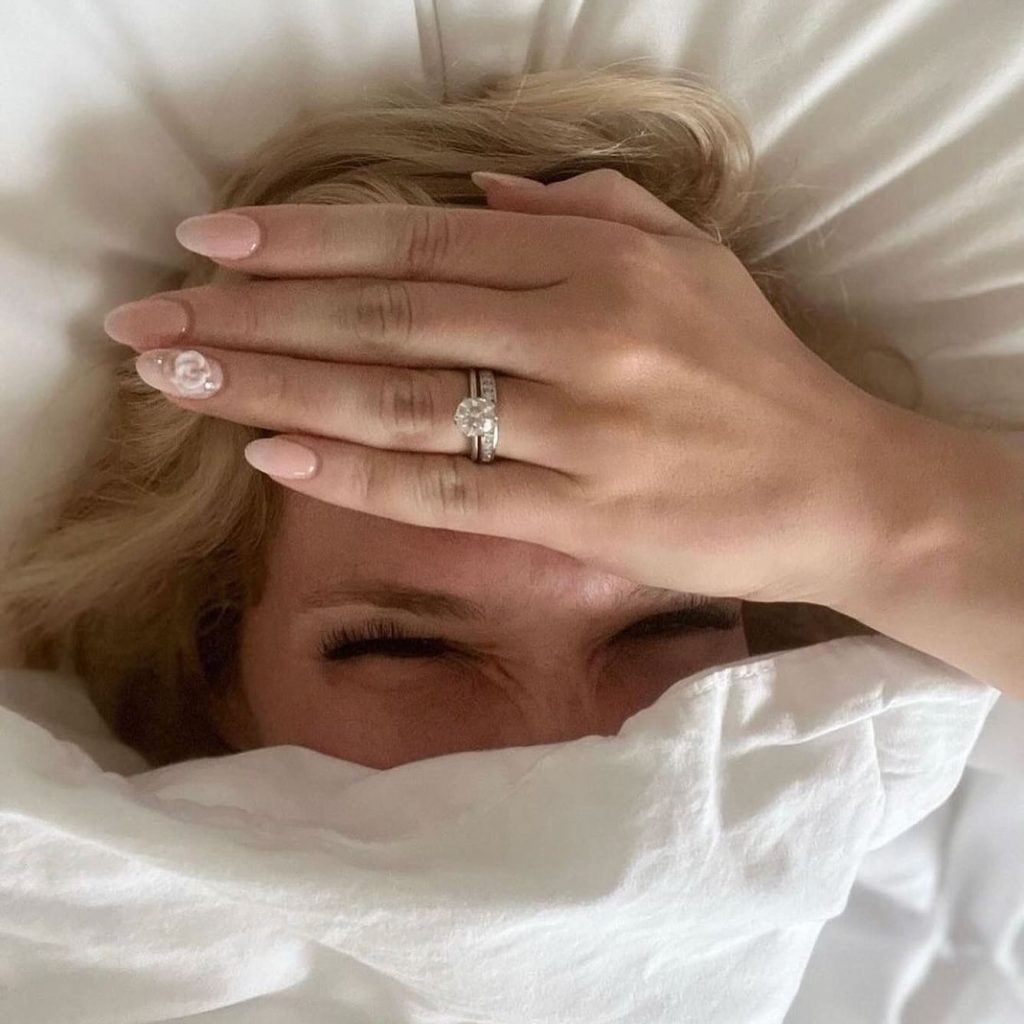After months of planning, preparation and sleepless nights, your wedding day arrives, and it’s everything you’ve dreamed of and more. Surrounded by closest family and friends, you say “I do” to your sweetheart, enjoy a delicious meal and dance the night away.
Despite a dreamy night and a romantic honeymoon, you can’t help but feel a sense of emptiness and depression now that it’s all over. What is going on?
If any of this sounds familiar, you are likely experiencing post-wedding blues.
What are Post-Wedding Blues?
Simply put, post-wedding blues are feelings of sadness after the big day is over. Along with feeling down, you may also experience feelings of boredom, isolation, loneliness, nostalgia or lethargy. Typically, post-wedding blues only last about two weeks.
In more severe cases, brides may experience post-wedding depression, which lasts longer and is more pervasive. If you experience post-wedding blues for over a month, consider consulting with a professional.
What Causes Post-Wedding Blues?
Post-wedding blues stem from a number of factors. According to Psychology Today, there are several characteristics that separate “blue brides” from “happy brides.” The first is a heavy focus on the actual wedding day rather than the marriage itself. Additionally, sadness often occurs if brides have “centered themselves in wedding planning and on the wedding day,” writes Sylvia L. Mikucki-Enyart Ph.D. Finally, post-wedding blues can be the result of uncertainty or questioning regarding the marriage. If a bride feels unsure about her decision or doubtful about her marriage, she is much more likely to experience symptoms of depression after the wedding.
Along with the above reasons, post-wedding blues may also be linked to the challenges of a new marriage, a common one being the adjustment period needed for couples. It goes without saying that marriage changes a relationship, and brides and grooms alike need time to adjust to this new reality. As Mikucki-Enyart writes, “Getting married is a big turning point in a relationship, no matter how long you have been together. Shifting from dating (or cohabiting) to legally married can be daunting and elicit uncertainty, or questions, no matter how excited about and confident you are in your union.”
With all the anticipation, preparation and planning leading up to a wedding day, brides can often feel a sense of emptiness after it’s all over. As Social and Personal Weddings puts it, “your body is going through emotional withdrawal after an intense high from all the planning and preparations and finally, the wedding itself.” With the spotlight no longer on them, couples may experience a sudden ‘loss’ of wedding-focused activities.
Managing Post-Wedding Blues
You don’t have to suffer alone when it comes to post-wedding sadness. Although there are many reasons couples may experience post-wedding blues, there are also plenty of ways to manage symptoms. Below we’ve outlined some tips to help you manage your blues and find joy in your new marriage!
Preventative Measures Against the Blues
If you have yet to walk down the aisle, there are several ways to prevent post-wedding blues. We’ve outlined a few ways to ensure that any negative feelings stay far away after your day comes to a close.

Focus on the Marriage, Not the Wedding
The first measure you can take against the post-wedding blues is simply being mindful of the possibility and taking steps against it. One way to do this is to focus on your upcoming marriage more than the big day itself. While wedding details matter, your transition into spousehood is even more important.
Per Mikucki-Enyart’s recommendation, be sure to give adequate attention to your upcoming marriage more than the wedding itself. As your wedding draws nearer, mentally prepare yourself for an upcoming life change. A few great ways to do this include journaling, talking to a close friend or family member or going to pre-marital counseling sessions with your spouse-to-be.
Leave a Honeymoon Buffer
Suggested by Social and Personal Weddings, leaving some time between your wedding day and honeymoon may help with post-wedding blues because it will give you something to look forward to after your wedding is over. Another perk of a honeymoon buffer is the time it will give you and your spouse to rest, allowing you to enjoy each day to its fullest.
Take Extra Time Off
Saving some of your vacation time at work is another great way to ensure the blues stay away. Instead of jumping right back into work after your wedding or honeymoon, allow yourself two or three days to get settled into your new life as a married couple. Figure out a routine and take some time to rest after your big day and/or lots of traveling.
Managing Blues After the Wedding
If you’ve already tied the knot and find yourself feeling down, fear not! There are many ways to tackle the blues. With a little intentionality, effort and support from loved ones, you’ll be feeling like yourself in no time.
Feel Your Feelings
Though tempting to suppress negative feelings after such a joyful celebration, it’s important to give yourself space to process your emotions. If you’re feeling sad, let yourself sit with the sadness. If you need to cry, don’t be afraid to let the tears fall.
“These feelings need to be acknowledged, felt, talked about, and worked through or they’ll find their way out in some way,” says licensed professional counselor Sarah Thompson.
Reflection & Journaling
Reflecting on your wedding experience through journaling can be extremely helpful for brides who are external processors. Similar to letting out your tears, journaling can be cathartic for those experiencing post-wedding blues. Not only does it provide an outlet for your emotions, it also helps you organize and work through your thoughts.
Besides journaling, consider processing your feelings with a trusted friend, family member or a counselor. Others can help bring things into perspective, offer support and remind you that you’re not alone.
Lean on Your Spouse
Intentional communication is crucial for building a healthy marriage, and speaking up about any post-wedding blues is a great first step to take in setting this precedent.
As Hilary Weinstein, LCSW states, “I view times when one or both partners need support as a way to grow stronger as a couple. It allows both people to further understand how to express their needs, while also understanding how to meet their partner’s needs too.”
Managing your sadness after the wedding may be a challenge, but it’s also an opportunity to grow closer with your partner as you step into marriage together.

Make New Plans
You’ve spent countless hours planning your dream wedding, and after all is said and done, it’s not uncommon to feel a sense of loss. Your wedding and honeymoon may be over, but that doesn’t mean you have nothing to look forward to. Consider upcoming holidays, birthdays or other special occasions you and your partner get to celebrate together.
If those events feel far off, then plan something together. It could be as simple as a dinner date, playing games together or a movie night. If you’d like a more involved project, you could work on your next trip together or an upcoming move. Either way, having something to look forward to can make a big difference as you wade through post-wedding sadness.
Practice Gratitude
When coming down from the high of your wedding day, it’s easy to focus on the negative. Practicing gratitude is a simple way to reflect on the good in your life. By counteracting negative feelings and traits such as envy, comparison, narcissism, materialism and cynicism, this practice is a great way to fight against your post-wedding blues.
The easiest way to practice gratitude is by keeping a gratitude journal. Simply sit down with your journal one to three times a week and write down five to ten things you’re grateful for. Your physical journal can look however you want and can even be electronic if you prefer.
Romanticize Your Life
Sure, your ordinary tasks may feel a bit boring, but they don’t have to! Think of ways to add a little more fun, charm and beauty to your day. The changes you make don’t have to be big as long as they’re meaningful to you. Adding a little romance to your everyday life could be as simple as
- Taking a walk
- Basking in the sun
- Dressing up for the day
- Enjoying a steaming cup of coffee or tea
- Taking a bubble bath
- Creating a morning/evening routine you look forward to
- Watching the sunrise and sunset
- Lighting a candle
- Listening to music
Focus on Your Marriage
Your wedding may be over, but your marriage is just beginning! It’s wonderful to celebrate your union with a wedding, but at the end of the day, your long-term relationship is what matters most. Prioritize each other in this new season by planning romantic dates, figuring out new daily rhythms and communicating with intention.
Still Feeling Blue?
While post-wedding blues are completely normal, if they last longer than a couple weeks or start getting in the way of daily activities, we encourage you to seek professional help. Working with a therapist or physician can help you process your feelings and provide helpful solutions.






